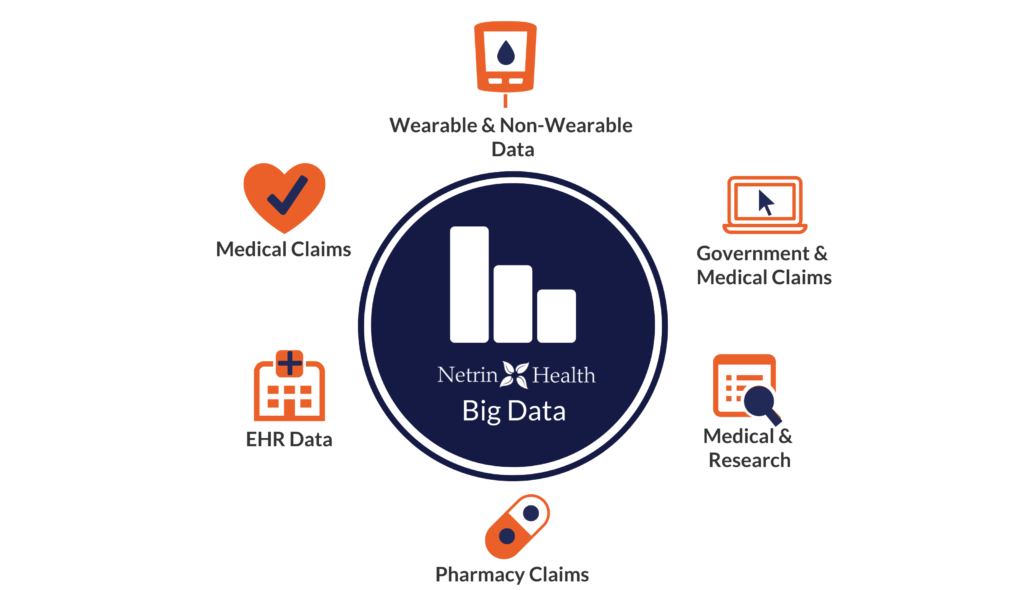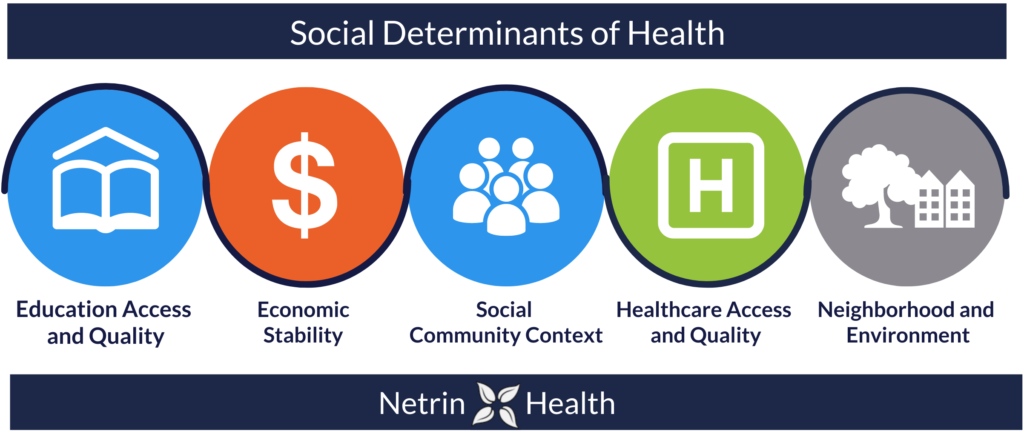Share Article
Healthcare data analytics is an important tool being used in the healthcare sector. This is especially the reality in a post-Covid world where evidence-based decision making is crucial for diagnosing and treating patients. Medical professionals rely on healthcare ‘big data’ to formulate, simplify, and visually present information that will assist in understanding a patient’s needs. Healthcare organizations and individual providers must learn how to manage and interpret healthcare data analytics for the benefit of their patient population.
What is Big Data?
Healthcare Big Data or simply “Big Data” has no exact definition, but is understood by healthcare systems as high volume, high diversity biological, clinical, environmental, and lifestyle information collected from single individuals to large cohorts, in relation to their health and wellness status, at one or several time points. Even though large and complex, Big Data as a form of healthcare data analytics can be used to collect electronic health records, local population health information, patient summaries, and medical claims.

A study on Big Data in Public Health, Telemedicine and Healthcare of the European Commission found that Big Data contributed to data analytics for healthcare on four distinct levels;
- Increasing earlier diagnosis and the effectiveness and quality of treatments
- Widening possibilities for prevention of diseases by identification of risk factors for disease
- Improvement of pharmacovigilance and patient safety through the ability to make more informed medical decisions based on directly delivered information to the patients
- Overall prediction of outcomes
Health care is transforming everyday. The delivery of care is changing rapidly, the baby boomer generation is getting older, and value-based care is replacing the older models of care. Healthcare data analytics help organizations uncover vital insights in their data that could help them identify opportunities to provide more value, efficacy and better-quality care at an affordable cost. These benefits are exactly why the implementation of Big Data is so important.
Big Data in Population Health
The partnership needed between the clinical aspect of care and population health management cannot be emphasized enough. Population health management is needed to look at how external factors such as income, environment, and access to healthcare impact a community or individual. These social determinants of health measure the health status of the individual by looking beyond their medical condition to understand the patient as a whole.
Healthcare data analytics come into play by eliminating the “one size fits all” mentality and allowing physicians to see patient metrics and risk scores in a more personalized format. With population health data tools as stated, care team organizations can gain insights into patient needs and allocate resources to those who may need them more, improving overall care.

The Importance of Data Aggregation
Data analytics is complicated. With a plethora of aggregate data; the volume of available healthcare data is unprecedented. This is why proper data integration and categorization is required to sufficiently analyze information for providers.
Data Aggregation must follow the following five steps;
1-Consolidation: Keeping data in one unified place and comparing it across all functions to ensure the data is being used to its fullest potential.
2-Storage: A data management step that organizations must take to hire a third party to properly maintain healthcare data.
3-Protection: Protection is safeguarding a patient’s privacy by hiring a professional agency to prevent data breaches.
4- Standardization: Standardization is uniformly and constantly categorizing data across all platforms.
5-Access: The ability for the right users to be able to open information through proper interoperability.
If data aggregation is not proficient, the full potential of healthcare data analytics will not be realized by healthcare institutions.
Moving Forward
Even in a non-clinical setting, healthcare data analytics serve to provide consulting firms, care organizations, and other healthcare entities with information to better understand their clients. For example, physicians are busy attending to several patients. A long schedule along with a new era of multi-chronic condition patients can hinder providers having the time to look at the analytics. The solution for practices is to partner with care organizations to take on the role of interpreting and recommending measures for providers. This partnership shows evident improvement in service line optimization areas such as;
- Identifying early warning signs of potential facility performance issues
- Reaching more prospective patients through marketing that targets the consumers likely to become a lifetime patient for a practice
- Allocating resources through understanding of who your best patients are and their likelihood to visit your existing or planned facilities.
Conclusion
Big Data in healthcare is consequential in identifying and serving a patient’s needs. This is why Netrin Health strives to be your one-stop resource for your practice needs. With a team of professional care managers spanning from doctors, nurses, and other subspecialties- you and your practice will receive one-on-one guidance along with comprehensive analytics of health trends through our online interface that you may see patient billing, health status, SDOH screening, and at-risk individuals. Having access to your patients information in a comprehensive manner along with a professional care team by your side will only ensure the best possible outcomes.
Healthcare data analytics is the future. Find out more about our services at netrinhealth.com.
Pastorino R., De Vito C., Migliara G., Glocker K., Binenbaum I., Ricciardi W., Boccia S. (2019). Benefits and challenges of Big Data in healthcare: an overview of the European initiatives. National Library of Medicine.
(December 30, 2021). What Is the Role of Data Analytics in Population Health Management? Health IT Analytics.
